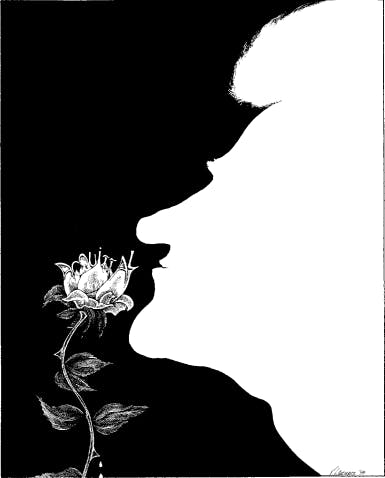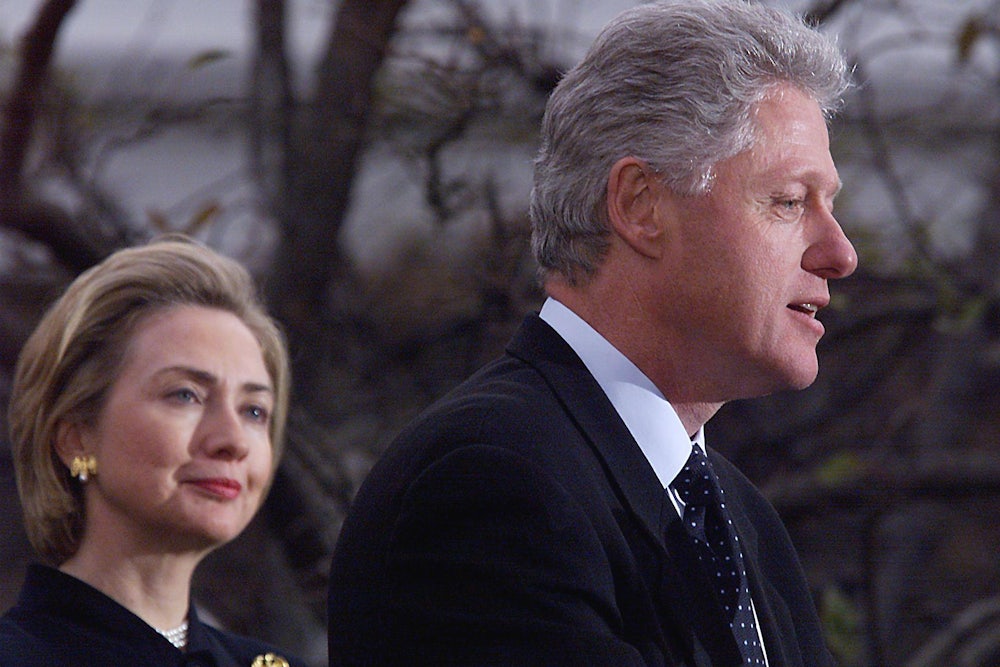A few hours after the Senate acquitted President Clinton last Friday, Paul Begala celebrated by taking his young sons to the rodeo. The weary presidential counselor had come for some relaxation; instead, he found allegory. The rodeo announcer declared that a fellow named J.W. Hart would be riding that night—for the first time since a nasty spill last year earned him 80 stitches and 30 staples in his head. Good ol’ J.W., the announcer said, had to pull out some of the staples that night just to put on his ten-gallon hat. “For me, it was a fitting metaphor,” Begala says. “You get sutured up and climb back on. My heart went out to him: there he was, back on that bull.”

The White House staff, too, was back on its prescandal bull this week. After a three-day weekend and a presidential jaunt to Mexico, the senior staff meeting Tuesday was almost boring in its efficiency. Counsel Charles Ruff, after months in the spotlight, delivered a one-word report: “Nothing.” Press Secretary Joe Lockhart stepped up the push for a first-in-ages Clinton press conference amid signs the president might actually do it. The White House drug office, of all things, delivered the longest report of the morning, and representatives of the bureaucracy’s alphabet soup—OMB, CEQ, DPC, NEC, NSC—basked in their sudden return to relevance.
“All these people who had been on page twenty-one for the last year are now on page one,” says one top Clinton aide. The White House plans a profusion of Social Security and USA Account events, plus new attention for Kosovo, Iraq, and even Ghana. One long-neglected national security adviser remarked excitedly to his colleagues: “Sixty-four foreign policy stories today in The New York Times! It’s like the old days!”
As for the scandalmen, it’s more like nap time. “I was thinking of having a `will spin for food’ sign made up,” says Jim Kennedy, the scandal spokesman. “It’s amazing: my pager didn’t go off once on Sunday.” Kennedy, who, like most staffers, took President’s Day off, will spend the next few days cleaning off his desk.
Things are much the same for the White House press corps, which, after a year of wishing away the scandal, seems to have more of a sense of dread than relief. There was an eerie calm in Washington the Day the Scandal Died. Nobody was staking out the Mayflower. Not a camera was posted outside Monica’s lawyers’ offices. At the White House’s Northwest Gate, where Monica threw her now-infamous jealous fit upon learning from the Secret Service that her man was in the Oval Office with another gal, all was quiet. Inside the briefing room, bored photographers were watching a TV talk show titled “My Daughter Dresses Too Revealing.” Out on the lawn, television correspondents were applying makeup, getting ready to tell the world what it already knew: Clinton was off the hook. The only disturbance was a stiff breeze, which disrupted the correspondents’ equipment—and hairdos. A few minutes before the vote, a windswept Sam Donaldson stormed into the briefing room, shouting “Jesus Christ!” A woman laughed. “Hold that toupee,” she said after he passed.
There were occasional bursts of jubilation as the afternoon progressed, first with the Senate acquittal and then with the Clinton acceptance speech. “He’s free! Free Willy!” a gentlelady of the press exclaimed. But despite the professions of relief, reporters quietly confided to each other a different sentiment—boredom. “Who are we going to throw out now?” one asked. “It doesn’t feel very historical, does it?” mused another. “Now what are we going to write about?” a reporter for a big daily asked. “That,” somebody responded, “is what I’m afraid of.”
Me, too. How are we going to fill our pages without the scandal? Are we now to turn to the much-neglected stories of the past year? Will we finally learn the details of the education policies Monica Lewinsky shared with the president? Will we explore the legal precedents in Ken Starr’s defense of Meineke Discount Muffler? The boredom has already set in. Even before the vote, the press was trying to make the roll call into a parlor game, predicting the irrelevant matter of whether there would be 50 votes for either charge. By the Monday following the vote, deflated networks were already returning to JonBenet Ramsey. NBC’s Jamie Gangel, who snagged the first Linda Tripp interview, was reduced Tuesday to doing a way-too-long segment on the revival of roller derby.
At the moment, the press is entertaining itself by trying to catch Clinton and his aides in flagrante delicto, gloating. Lockhart felt compelled to declare the White House a “gloat-free zone,” and the no-gloat policy was so strictly enforced that the press-office staff showed not so much as a grin when Clinton was acquitted. Lockhart’s office curtains were drawn Friday to hide whatever gloating happened inside. Photographers with telephoto lenses found an open window on the second floor of the White House, but the gloaters quickly discovered the espionage and drew the shades. After the acquittal vote, a White House janitor walked out with an empty case of Maker’s Mark whiskey—tantalizing evidence that somebody must be gloating somewhere inside the mansion.
Moments later, I was almost knocked over by a stampede of photographers chasing Ruff’s wheelchair as he made his way through the gate to the Bombay Club for lunch. A reporter later asked Lockhart whether such a conspicuous departure for lunch was smoking-gun evidence of gloating. “If you think walking out through one gate over another is some sort of signal to someone, you’re overthinking,” Lockhart said. Looking for gloating in all the wrong places and finding none, journalists had to content themselves with fantasies about behind-the-scenes gloating. “They’re probably in there trying to stick rags down his throat,” one correspondent said of Clinton after the acquittal. When Lockhart’s briefing was delayed, another journalist suspected surreptitious gloating. “Joe can’t keep himself from smiling,” he said. “They have to wait until he stops. It’s a gloat-free zone.”
Actually, the only gloating I could detect at the White House was gloating about not gloating. Relieved, they said. Content, yes. Liberated, certainly. But gloating? “No,” said Lanny Davis, who proceeded to parse the definition of gloating. “I don’t mind saying I feel vindicated,” the spinner said. “I intend to constantly remind every Republican member of the House who voted for perjury to call Fred Thompson and Richard Shelby,” two GOP senators who voted against the perjury article. But, Lanny, isn’t that gloating? “That part of it isn’t gloating,” Davis said. “It’s vindication. It’s legitimate.”
Clintonites have good reason not to gloat. For one, there’s no predicting what Starr might try next. “How many days you think will pass after the impeachment trial before Starr files a sixty-three-count indictment against the president?” one Clinton aide asked. “He’s on a mission from God.” A number of White House aides, burned out by the scandal, are heading for the door now that it’s over. Greg Craig and Lanny Breuer will leave the counsel’s office; two other members of the scandal team, Adam Goldberg and Don Goldberg, have already left. Elena Kagan, number two at the Domestic Policy Council, is off to Harvard; even Begala is said to be leaving.
Too many White House aides have been saddled with huge legal bills, have been personally devastated, or are just worn out by scandal management. “I feel as if I’ve been hit by a truck,” says Larry Stein, Clinton’s top lobbyist. One senior Clinton aide says he’s tired of the “doe-eyed” looks of reporters who profess distaste for scandal and delight now that it’s over. “I’m sure it’s hard to cover a fire,” he says, “but don’t dare tell me covering a fire is harder than having the [expletive] house burning down around you.”
